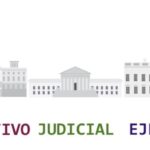We explain what a minister is, the origin of the term and the history of the position. Furthermore, how it is part of the Executive Branch of a State.

What is a minister?
When we talk about a minister today, in most cases we are referring to a person who holds a public office of political importance, directing a specific department (i.e. a ministry) within a government cabinet.
These types of positions are under the direct authority of whoever exercises the head of the Executive Branch (that is, a president or a prime minister, or their equivalents) and in some nations they are known as “secretaries of State.”
The word minister comes from Latin ministertranslatable as “who is in charge of the minimum”, that is, “servant” or “servant”, and present in other words such as “administration”.
The term comes from the times of Ancient Rome, especially in the 5th and 6th centuries AD. C., when the Roman Republic became an increasingly vertical empire. At that time the positions elected by the plebs (“magistrates”) were replaced by those personally appointed by the monarch, who trusted only his servants and his closest servants, or people highly trusted by the emperor, who became known as minister either ministeriani.
The term passed from those ancient times to the Christian Medieval era. It was adopted by the religion itself as a way of referring to its priests, who “serve God” or are, in some way, his representatives on Earth, given that the Christian God is the absolute king of creation.
This use still exists in the Catholic Church and in other different cults. Similarly, the term passed into modern republican life and is today used to refer to government cabinet officials.
In political terms, the ministers They are part of the government and the Executive Branch, and are usually organized according to the area of their interest in ministries that is, in units that are dedicated to a specific aspect of government management. For example, there is usually a minister of education, defense, economy, health, etc., depending on the number and name of the ministries included in the structure of the State.
Instead, A Prime Minister is the political head of the government, that is, the one who coordinates the work of all these ministers and depending on the model of State, it may respond to the elected president or it may take his place.
Continue with: Powers of the State
References
- “Minister” in Wikipedia.
- “Religious minister” in Wikipedia.
- “Minister, tra” in the Language Dictionary of the Royal Spanish Academy.
- “Etymology of Minister” in the Online Spanish Etymological Dictionary (Chile).
- “Minister” in Legal Encyclopedia.





